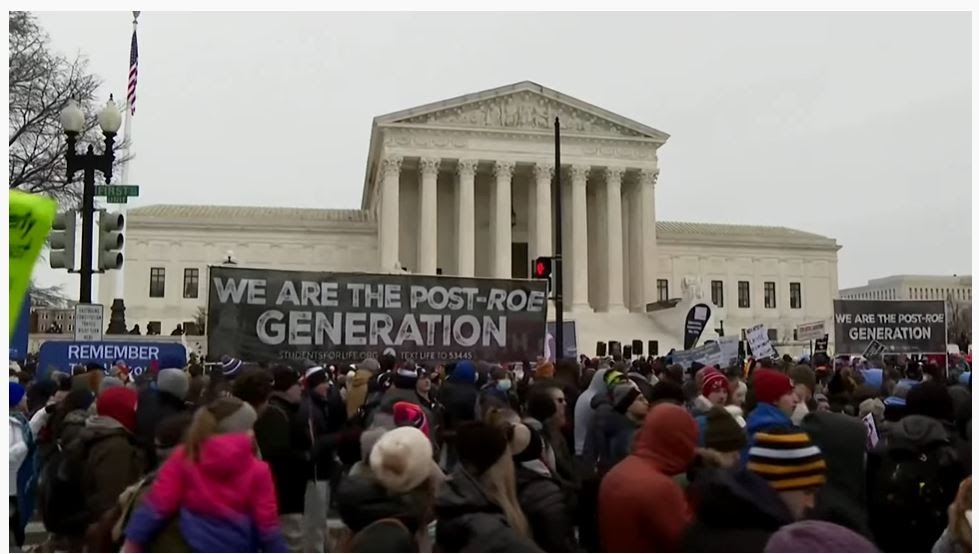
Tens of thousands of people participated in the 2022 March for Life rally in Washington D.C. in support of anti-abortion legislation. The rally comes at a time when tensions surrounding the national abortion conversation are extremely high.
Rally-goers from across the nation huddled together in front of the Supreme Court on Jan. 21 for the annual March for Life. The event occurred as potential legislative changes to the U.S. Supreme Court Roe v. Wade decision loomed.
The 2022 March for Life was year 49 of the annual gathering, and was held on the day before the 49th commemoration of the Roe v. Wade decision. The first march took place in 1974 on the anniversary of the Roe v. Wade verdict, and has occurred every year since as anti-abortion supporters rally to overturn abortion legality.
There is an increasing feeling among some anti-abortion demonstrators that the Jan. 21 event could have been the final march before Roe v. Wade is possibly overturned. March for Life Education and Defense Fund President Jeanne Mancini said, “We are hoping and praying that this year, 2022, will bring us historic change for life. Roe is not settled law.”
The theme of the 2022 March was “Equality Begins in the Womb,” and although it is typically attended by about 100,000 people, this year’s event had a smaller crowd than previous years due to pandemic-related restrictions in Washington D.C.
In a statement released on Jan. 22, President Joe Biden and Vice President Kamala Harris said the right to an abortion established by Roe v. Wade “is under assault as never before,” and that they were committed “to ensuring that this country is not pushed backwards on women’s equality.”
“We must ensure that our daughters and granddaughters have the same fundamental rights that their mothers and grandmothers fought for and won on this day, 49 years ago,” the Biden-Harris administration said in a joint statement.
Some of the event’s speakers likened the cause of anti-abortion activists and supporters to the U.S. struggle for racial justice and gender equality and implied that abortion is “the ultimate form of discrimination.” The March’s keynote speaker, Father Mike Schmitz discussed the importance of considering the potential of every person, their life and how everyone is loved and matters as a person.
Attendees of the march included members of Congress, Chris Smith (R-NJ), Julia Letlow (R-LA), Dan Lipiniski (R-IL), students from Villanova University, Christendom College, St. Francis University, and other nearby universities, and various religious organizations such as the Archdiocese of St. Louis and Lutheran Church-Missouri Synod (LCMS).
In addition to advocacy and nonprofit groups that support anti-abortion public policy such as First Focus, extremist organizations such as Patriot Front traveled to the nation’s capital in support of the event.
Organizations like Women’s Reproductive Rights Assistance Project, Planned Parenthood, and National Women’s Health Network provides resources and advocate for women who consider abortions and seek medical support.
“Black women are free to make our own decisions about our bodies and pregnancies and deserve to have access to the best medical care available,” Nia Martin-Robinson, Planned Parenthood’s director of Black leadership and engagement, said.
Perspectives on the topic of abortion vary internationally and in individual nations. While abortion laws remain contested around the globe, the U.S. has taken a position similar to Canada, China, Vietnam, North Korea and South Korea as one of six nations whose national laws permit abortion at any point throughout a pregnancy. The Family Research Council develops the abortion laws world map, which showcases differences in national approaches.

